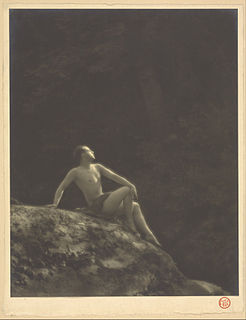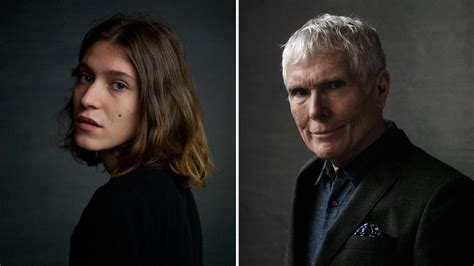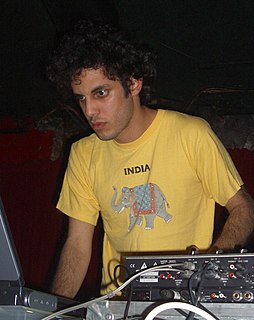A Quote by Ted Shawn
Related Quotes
Ecstasy is our very nature, not to be ecstatic is simply unnecessary. To be ecstatic is natural, spontaneous. It needs no effort to be ecstatic, it needs great effort to be miserable. That's why you look so tired, because misery is real hard work; to maintain it is really difficult, because you are doing something against the nature.
Well, this week's peeve might be... when art writers talk about an artist's 'efforts,' meaning their work. It always sounds patronizing to me, like 'I'll give you an E for effort.' How about the artist's 'effortlessnesses' instead? It's certainly something, or at least the appearance of something, that I aspire to myself.
What we also need to have a discussion on the philosophy of art: so we must ask what is it that we want in the first place? Is it just about saying and doing whatever you want, or is it about something more? We should let the artist be free, but we must also question how exactly he deals with freedom. Is it arts for elevation or arts for destruction? Is there dignity in the process?
Why was the painting made? What ideas of the artist can we sense? Can the personality and sensitivity of the artist be felt when studying the work? What is the artist telling us about his or her feelings about the subject? What response do I get from the message of the artist? Do I know the artist better because of the painting?
Acting was always something I pursued by myself. When we were in college, I took an acting class that I was so passionate about and devoted to, but I went to it privately and never really spoke about it. I'd have these ecstatic experiences in, like, a church basement and then never talk about it with other people.
As a filmmaker, like any artist, when something affects me emotionally I think about it in those terms. It's my way of dealing with my thoughts, my fears and my hardships. I think the same can be said with any artist. For a musician, you're going to write a song about something that affects you emotionally.
As a filmmaker‚ like any artist‚ when something affects me emotionally I think about it in those terms. It's my way of dealing with my thoughts‚ my fears and my hardships. I think the same can be said with any artist. For a musician‚ you're going to write a song about something that affects you emotionally.
I thought Everything Ecstatic was the happiest of them all - hence the "ecstatic" name. The whole concept behind that was total out-and-out euphoric mania. I think tracks like "Smile Around The Face" are the jolliest things I've ever done, really. But one of the things I like about my music is the fact that it's instrumental, so there are no lyrics to guide people.






































